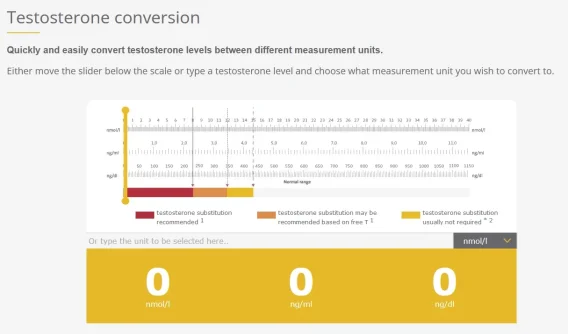Okay Madman, so now my question is:
What is the solution then? Besides Natesto?
Because from the sound of it, TRT is not a viable option, better stay low T for life (considering everything is done to raise it but the balls just don’t seem to work as they should).
For example, would injecting twice per week a 80-100 mg dose (so 40-50 mg twice per week) would be closest to having at least peaks and downward levels that most closely ressemble natural healthy levels?
In my case I honestly don t care about levels. If i get symptom relief in the 500-600s I ll take it with open arms.
Again forget worrying about where your trough TT/FT will end up!
Start low and go slow.
100 mg T split into twice-weekly (50mg T every 3.5 days) injections is a sensible starting protocol.
If you want to start a little lower let alone throw in hCG off the hop go nuts!
No need to jump into injecting 3X/week off the hop.
Do what you feel is best for you.
Key when first starting TRT is to start low and go slow as in 100 mg T/week no AI or hCG.
T only protocol as we want to see how your body reacts to testosterone without mucking up the waters along the way.
Blood work will be done 6 weeks in once blood levels have stabilized (steady-state) so we can see where said protocol (dose T/injection frequency) has your trough TT, FT, estradiol, DHT, prolactin, SHBG let alone other important blood markers such as RBCs, hemoglobin and hematocrit.
The only time the dose of T should be increased at the 6 week mark is if you truly feel unwell due to achieving low trough FT levels (highly unlikely) in most cases.
Otherwise every protocol needs to be given 12 weeks to truly gauge the outcome/effectiveness.....THIS IS CRITICAL!
The protocol chosen (dose T/injection frequency) needs to be followed week in and week out.
When first starting therapy or tweaking a protocol (increasing/decreasing dose T) hormones will be in FLUX during the weeks leading up until blood levels have stabilized (4-6 weeks using TC/TE) and it is common for many to experience ups/downs during the transition as T levels are increasing or decreasing (when lowering T dose) and the body is trying to adjust.
Even then once blood levels have stabilized (4-6 weeks) it will still take the body a few months to adapt to the new set-point and this is the critical time period when one needs to gauge how they truly feel overall regarding relief/improvement of low-T symptoms.
Every protocol needs to be given a fighting chance to claim whether it was a success or failure.
Many make the mistake of tweaking their protocol every 6 weeks because they do
not feel good.
The first 6 weeks means nothing when looking at the bigger picture.
Patience is key otherwise you will end up chasing your tail indefinitely.
It is a common theme when starting TRT or tweaking a protocol (increasing dose T) to experience what we call the honeymoon period (euphoric like state, increased libido/erections, overall well-being) due to increasing T levels, dopamine, lighting up ARs (androgen receptors).
Unfortunately this is short-lived and temporary as the body will eventually adapt and things will level out and this will become the new norm.
Many lack the understanding of how this works and end up on that never ending merry go round chasing the honeymoon period.
After you put in the time 12 weeks to gauge how you truly feel regarding relief/improvement of low-T symptoms and overall well-being on your current protocol then you can decide if it needs to be tweaked (increase dose of T/manipulate injection frequency).
No one can say where you will end up or what protocol (dose of T/injection frequency) will be best for you!












